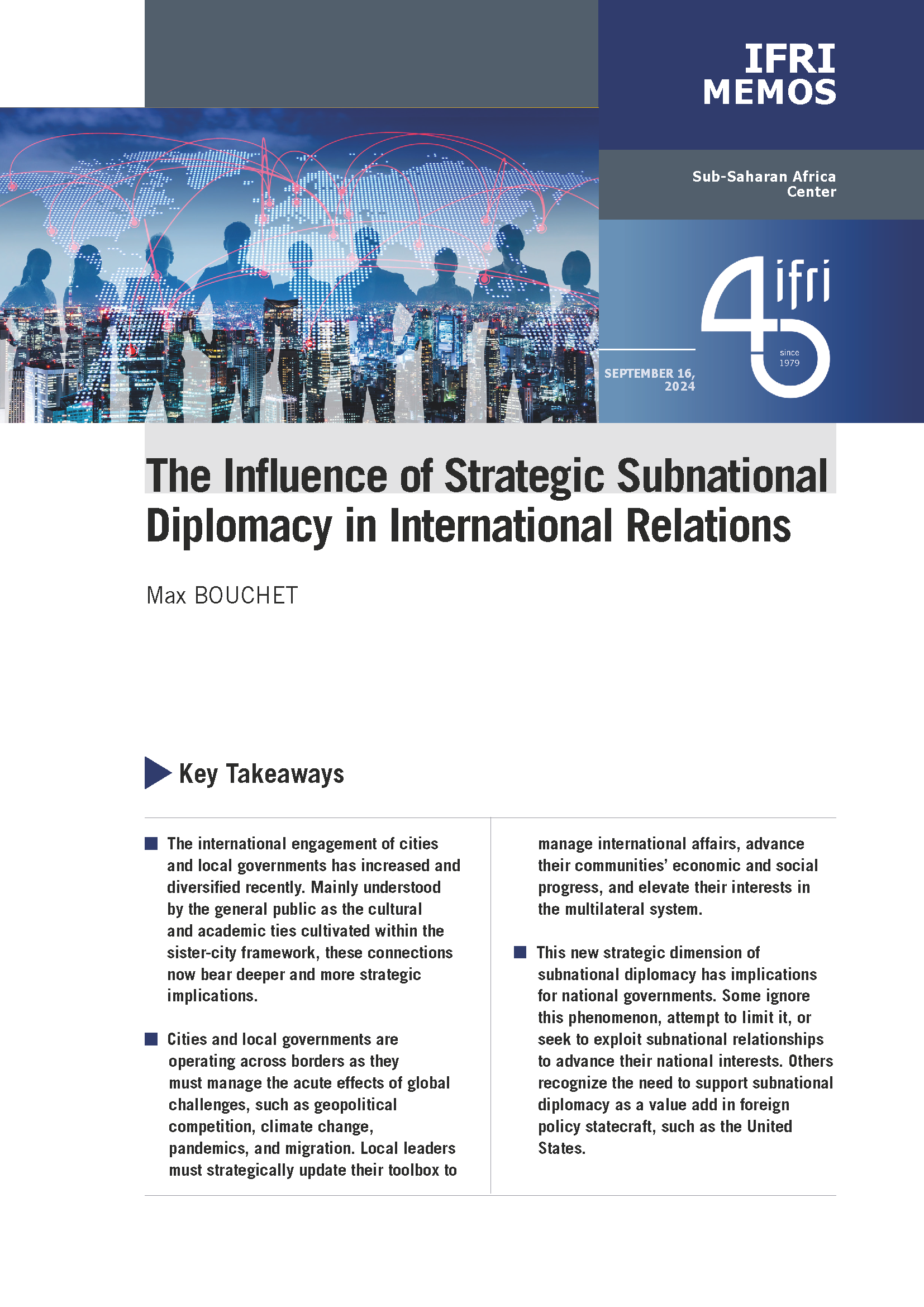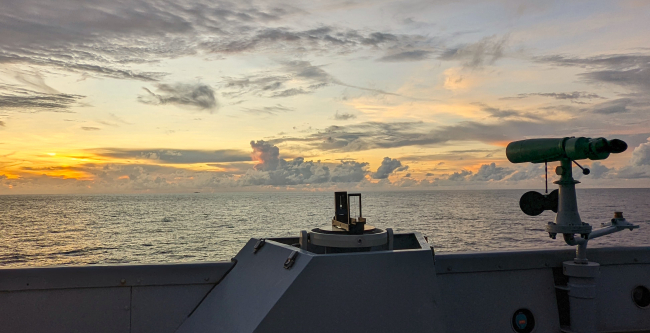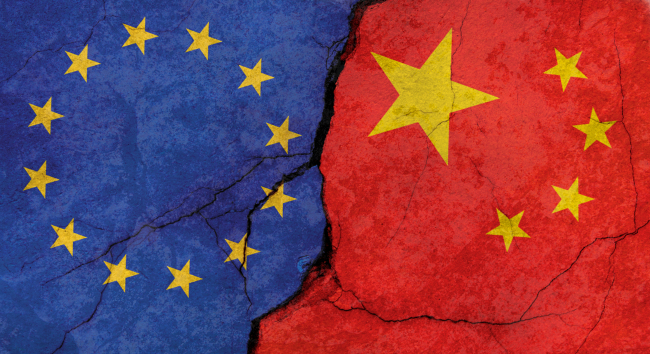Fumio Kishida's Visit to Paris. The France-Japan Relation Deserves Better

Chinese President Xi Jinping's state visit to France hit the headlines. President Macron rolled out the red carpet to welcome his guest, hoping to convince China to limit its support for Russia and respect fair trade rules.

Beyond the media frenzy, challenges and obstacles complicate bilateral relations, and there is little to celebrate beyond the 60th anniversary of the establishment of diplomatic relations.
A few days earlier, from May 1-3, Japanese Prime Minister Fumio Kishida's visit to Paris went largely unnoticed. In many ways, this visit reflected the state of the Franco-Japanese relationship, which, although founded on solid values, interests and strategic convergences, remains under-exploited and marked by misunderstandings.
Strong Strategic Convergence
While the official reason for Fumio Kishida's visit to Paris was to chair the ministerial meeting of the Organization for Economic Co-operation and Development (OECD), he was also able to hold talks with Prime Minister Gabriel Attal and President Emmanuel Macron. On this occasion, major new cooperations were unveiled in strategic areas such as economic security, notably the securing of supply chains for critical minerals, and defense cooperation with the negotiation of a reciprocal access agreement (RAA) for armed troops.
While Paris and Beijing differ over fundamental political values and have competing visions for global order, Japan and France largely see eye to eye about the importance of democratic principles, multilateralism and a rules-based order.
Tokyo has stood shoulder to shoulder with the G7 since the outbreak of hostilities in Ukraine, offering Kiev solid and unwavering support. In fact, Japan is the Asian country that provides the most aid to Ukraine, with 12 billion euros since 2022. Tokyo has even gone so far as to relax its legislation on the export of defense equipment to allow the shipment of Patriot missiles manufactured under license to the USA, to replace the units sent to Ukraine. This is the first time Japan has provided indirect military aid to a country in conflict. Finally, Tokyo has played a major role in keeping Ukraine high on the international agenda. In particular, it has invited President Volodymyr Zelensky to the G7 summit in Hiroshima in May 2023, and has raised awareness among “Global South” countries of Russian aggression and its potential implications in Asia.
More broadly, Macron and Kishida believe that they have a leading role to play in shaping a new world order, which must involve reforming the system of international governance, reducing North-South disparities, and implementing regulations in areas such as green finance, infrastructure, digital technology and artificial intelligence. These were all themes at the heart of Prime Minister Kishida's speeches to the OECD. As the third largest donor of official development assistance, Tokyo actively supports the decarbonization of Asian economies, joining President Macron's initiatives such as the Paris Pact for People and Planet, adopted in June 2023.
In contrast to a divisive China, Japan is also a fervent supporter of a united and powerful Europe on the international stage. The establishment in 2023 of a Japan-European Union (EU) strategic dialogue bringing together foreign ministers testifies to this convergence on national security issues, and completes an already extensive bilateral cooperation, notably in the key areas of green transition and digital. This rapprochement is in line with the fundamental interests of President Macron, who advocates making the EU a genuine geopolitical player and strengthening its sovereignty by multiplying partnerships.
In the Indo-Pacific region, Japan and France see themselves as key partners in the defense of a free, open, prosperous and inclusive region. Annual meetings of the two countries' foreign and defense ministers since 2014 have ensured close strategic dialogue. France is thus the fourth country with which Japan is negotiating a reciprocal access agreement for its troops. It is intended to facilitate joint exercises on French territories, notably in New Caledonia and French Polynesia in the South Pacific, a region where both countries have strategic interests. As outlined in the new roadmap for bilateral cooperation published last December, France and Japan intend to coordinate their efforts in the fields of maritime security, climate change, humanitarian assistance and disaster relief (HADR), digital connectivity and monitoring of influence operations in this region.
An Underexploited Relation
This makes the relationship with Japan particularly strategic for promoting French interests. However, frustrations arising from slow bureaucratic processes on both sides and misperceptions persist and limit the scope of cooperation. French officials tend to see Japan as too aligned with the United States, while their Japanese counterparts consider France to be generally too conciliatory towards China. This concern was fueled by President Macron's controversial comments on Taiwan on his return from China last year.
France and Japan would do well to recognize that their positions are actually more aligned than they think. Japan's multi-layered approach to China, comprising deterrence, counterweight and conditional cooperation based on economic security measures, bears many similarities to the French and European position, which sees Beijing as a partner, competitor and systemic rival, and implements a de-risking strategy.
Unlike the friction in the France-China relationship, where fundamental values and interests are at stake, the difficulties linked to misperceptions in France-Japan relations could easily be overcome through enhanced political dialogue.
It's time for France and Japan to raise the profile of their partnership and improve their strategic communications. Such measures would strengthen bilateral ties and lay the foundations for broader cooperation, especially with decisive elections looming in the USA this autumn.
This editorial is available in French : Visite de Fumio Kishida à Paris. La relation France-Japon mérite mieux.
*A shorter version of this editorial is available on Nikkei Asia's website.
Related centers and programs
Discover our other research centers and programsFind out more
Discover all our analyses
Getting China Onboard a Global Debt Governance System
China has become the number one provider of development finance in the world. Because of its significant share in Low and Middle Income Countries’ (LMICs) external debt, China should take up responsibilities and cooperate with traditional development finance providers, but its particular lending style and distinct approach to debt management pose many challenges and do not make international cooperation straightforward.
Deployment of the French Frigate Bretagne in the Indo-Pacific: Implementing French Strategy in the Region
The deployment of the French Navy’s multi-mission frigate (FREMM) Bretagne in the Indo-Pacific in recent months demonstrates France’s capability to project power far from the mainland and solidifies its Indo-Pacific strategy.
Japan’s Enhanced Security Engagement With the Pacific Islands
The expansion of security and defense cooperation stands as the most spectacular change in Japan’s contribution to the region in recent years.
National Perspectives on Europe's De-risking from China
The concept of “de-risking” has become a significant focus for the European Union (EU) in managing its relations with China since first proposed by European Commission President Ursula von der Leyen in March 2023. However, the interpretation and policy responses to de-risking vary across Europe, reflecting diverse national perspectives.












